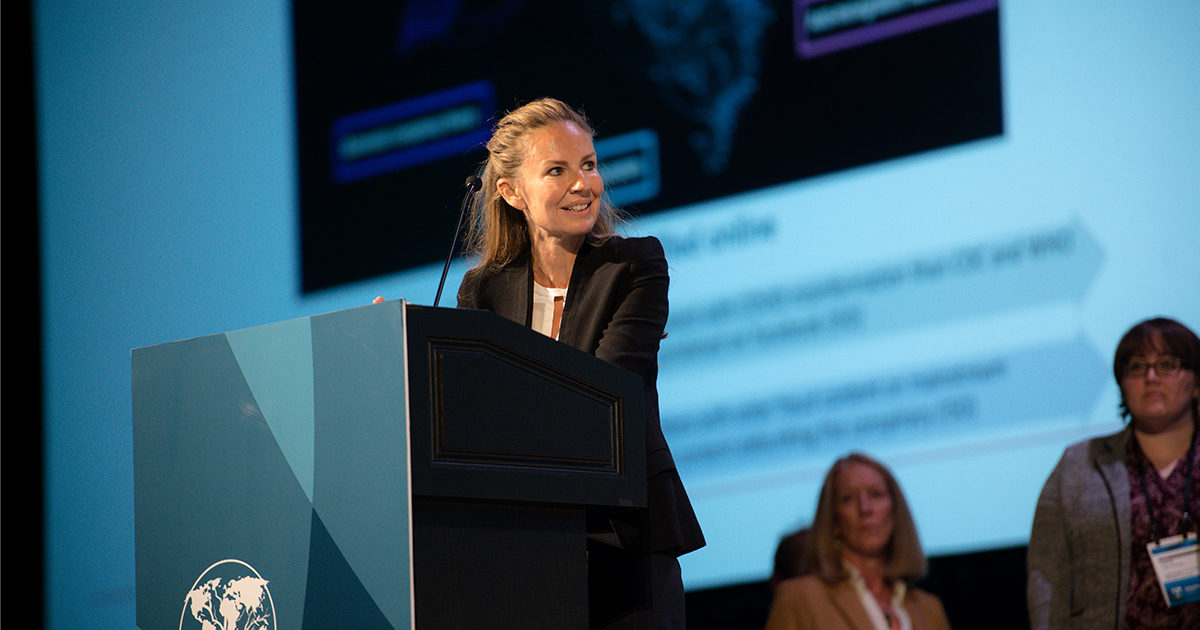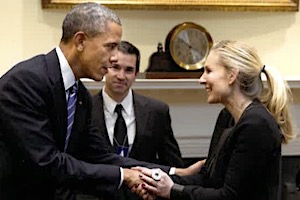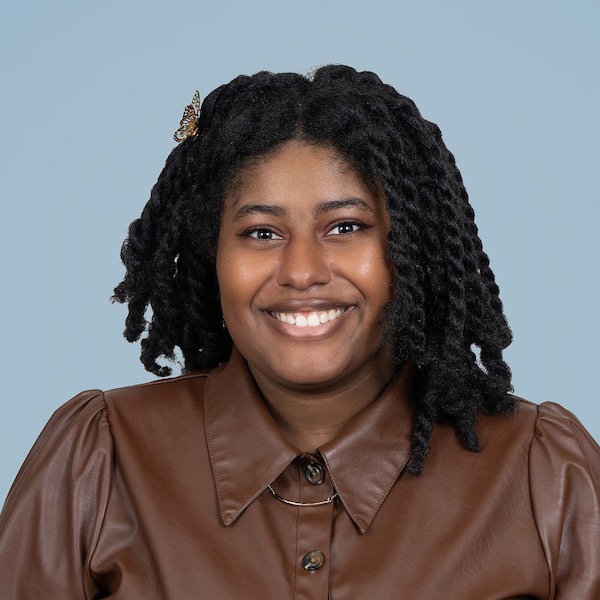ISD United States
One of the world's most dynamic societies, the United States feeds the technological revolution - and is also challenged by it
For more than 15 years, ISD has partnered with academic, private and public sector partners in the United States to provide insights and solutions to extremism, disinformation and hate. Today, our work in the US has expanded and we have a permanent office in Washington DC with staff stationed across the country.
ISD’s growing team in the US works with our partners to detect and mitigate threats, protect America’s democratic institutions, build capacity for locally-led violence prevention interventions and drive policy change.
Our work
Our US-based work is rooted in the unique social, cultural, economic and legislative environment that exists in the country. Our projects rely on strong partnerships, online research and practical outreach.
Detecting and mitigating threats
ISD has been a longstanding leader addressing global and domestic threats across the hybridized landscape. In 2015, ISD helped stage the White House Summit on Countering Violent Extremism, directly advising then President Barack Obama and his counter-terrorism team. ISD has continued this work, advising decision makers from the White House, the Department of Homeland Security and other government agencies on evolving threats both on- and offline.
ISD’s partnership with the Center for Internet Security provides real-time intelligence to thousands of law enforcement officials on dynamic threats and regular updates on the evolving risks posed by disinformation and extremist organizations.
Protecting our democracy and targeted communities
With America’s democracy increasingly under attack by a range of actors, ISD has taken the lead in providing regular threat detection, training and insights to groups on the front line of protecting elections and democracy. ISD's US team works with election officials at the state and local level, and directly briefs officials at the White House, the Department of Homeland Security, and Congress on these threats to help shape their responses.
In 2022, our elections team conducted daily monitoring of online disinformation and potential threats to election officials, election infrastructure like drop boxes and polling places, and even regular voters looking to participate in democracy. These monitoring reports were shared weekly in key states with governors, secretaries of state, local election officials, and others tasked with ensuring a free and fair vote.
In response to a rise in antisemitism throughout the US, ISD has developed a data analytics system to identify and track online threats against Jewish institutions. This capability, a combination of advanced big data analytics (NLP and machine learning systems trained to the issue set by experts) and human intelligence, can be adapted and applied to other communities increasingly threatened by extremist groups and actors.
Building capacity for community-based violence prevention
The Strong Cities Network (SCN) launched in 2015 at the UN General Assembly to mount a city-led response against hate, polarization and extremism. In the US, SCN facilitates partnerships between member cities including New York, Los Angeles and Denver to design and deploy local responses to these complex challenges, ensuring no city faces these threats alone. Our government partners include Australia, Denmark, the Netherlands, Norway and the US, with additional engagement supported or commissioned by individual members of our network of over 160 cities.
Additionally, through our partnership with the McCain Institute, ISD's US team is training and building the first US network of frontline practitioners, equipped to recognize and respond to domestic extremist threats. The content for this training has been developed by ISD and builds on work done around the world to support frontline practitioners with the capacity and tools to address local threats. The network has now trained nearly 1000 practitioners, including social and healthcare workers, education providers and law enforcement.
ISD has also worked with the US State Department and the first Special Representative to Muslim Communities, Farah Pandith, to connect and empower Muslim changemakers from across Europe and North America.

Sasha Havlicek leading the opening session of the 2022 Eradicate Hate Global Summit in Pittsburgh.

Head of Digital Integrity and Elections, Jiore Craig, spoke to CNN ahead of the 2022 US midterms

Sasha Havlicek meeting US President Barack Obama, Washington DC, 2015
ISD US in the media
The ISD US team

Sasha Havlicek
Co-Founder and CEO






Dixon Osburn
Executive Director, ISD US



Dixon Osburn
Executive Director, ISD US



Arabella Phillimore
Managing Director



Arabella Phillimore
Managing Director



Jiore Craig
Resident Senior Fellow, Digital Integrity






Isabelle Frances-Wright
Director of Technology and Society, ISD US






Katherine Keneally
Director of Threat Analysis and Prevention, ISD US



Prior to joining ISD, Katherine consulted and led research for the US government related to human trafficking and hostage taking. She also was an Intelligence Research Specialist at the NYPD Intelligence Bureau's Racially/Ethnically Motivated Extremism Unit ("REME") where she supported terrorism investigations and tactical and strategic research related to individuals and groups affiliated with politically- and ethnically-motivated, as well as single-issue, extremist ideologies. Katherine has a Master of Arts Degree in Security Studies from Georgetown University, and a Bachelor of Science in Political Studies and History from Rocky Mountain College.



Melanie Smith
Director of Research, ISD US






Jared Holt
Senior Research Analyst, ISD US






Kevin D. Reyes
Senior OSINT Specialist, ISD US



A recognized digital investigator, Kevin was previously director of research and intelligence at a consulting firm, where he conducted and managed hundreds of open-source and undercover investigations into illicit trade and transnational crime for Fortune 500 clients. Some of these investigations led to landmark civil cases as well as criminal prosecution by agencies within the Departments of Justice and Homeland Security, among others. He also worked in law library management at several law schools, and in international criminal law research at Robert F. Kennedy Human Rights in Washington DC and at the Human Rights Center at UC Berkeley School of Law.
Reyes is highly engaged in the development of the OSINT field. While at Berkeley's Human Rights Center in 2016, he helped launch the first university-based, open-source investigations lab of its kind to discover and verify human rights violations and potential war crimes. He was consulting editor of Digital Witness: Using Open Source Information for Human Rights Investigation, Documentation, and Accountability (Oxford University Press, 2020), the first book of its kind to teach the methods and best-practice of open-source research featuring contributions from other leaders in the field. He contributed to early work that led to the Berkeley Protocol on Digital Open Source Investigations (2022), the first-ever manual on the effective use of open-source information in international criminal and human rights investigations, published by the United Nations.
Kevin is a first-generation graduate of the University of California, Berkeley. His research and expertise have also been showcased in a variety of media outlets including ABC News, the Hill, Politico, Politifact, VICE, and NHK.



Lucy Cooper
Digital Research Analyst, ISD US



Lucy Cooper
Digital Research Analyst, ISD US



Ellen Jacobs
Digital Policy Manager, ISD US



Ellen Jacobs
Digital Policy Manager, ISD US



Ever Mack
Digital Research Analyst, ISD US



Ever Mack
Digital Research Analyst, ISD US



Sabine Lawrence
Digital Research Analyst, ISD US






Valeria de la Fuente
Press and Public Relations Coordinator, ISD US



Valeria de la Fuente
Press and Public Relations Coordinator, ISD US
